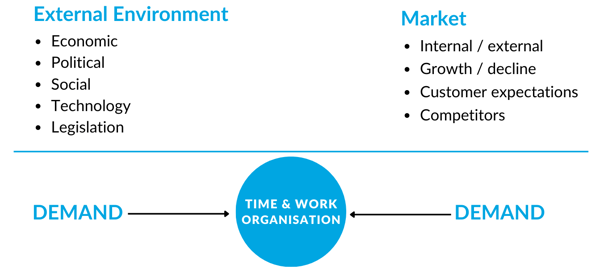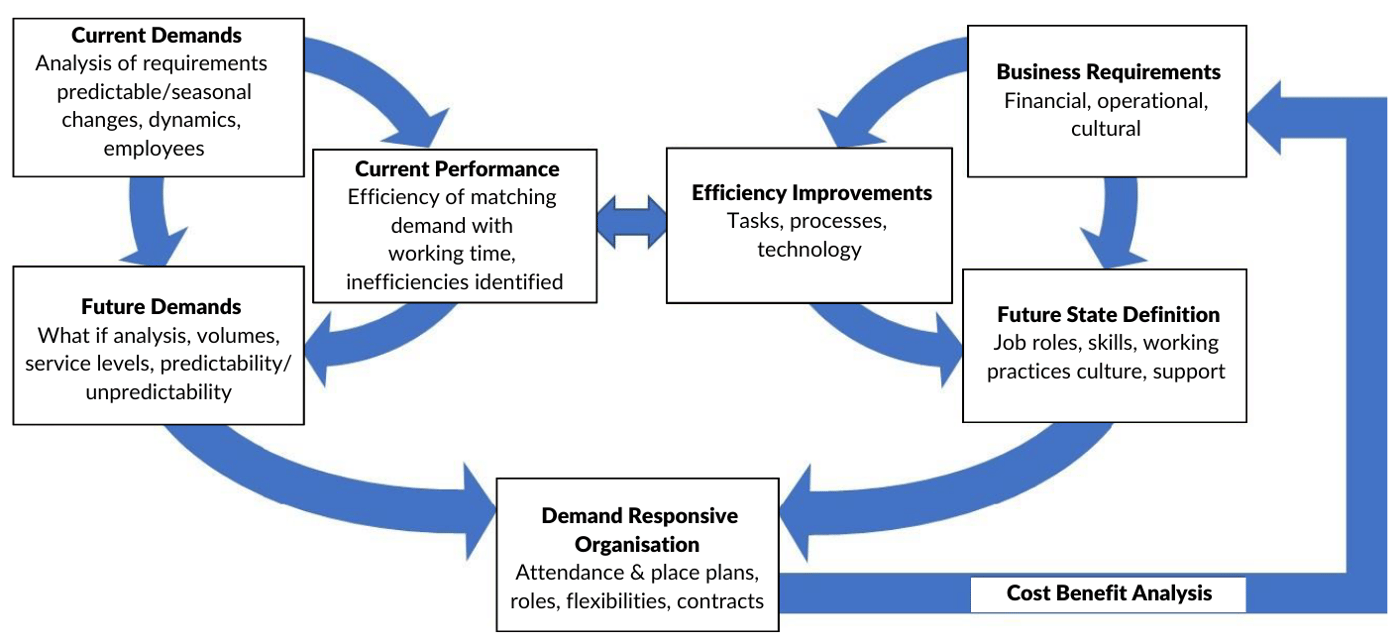The Demand Responsive Organisation
This is basically as it says on the tin structuring your business and systems around the demands of your organisation with the ability to match predictable and, to a degree, unpredictable changes.

These demands come from many sources, the basic ones being customers and the external market outside the organisation, operational employees, and the internal company market. These may lead to implicit time or seasonally predictable patterns but also include employee preferences and requirements as well as availability of resource, whether human or machine or goods. Some of these, such as job satisfaction, may not be as quantifiable and now may also include place of work. Business requirements for cost outlay and profit to be made must also be considered.

Probable future demands must also be considered – will they be the same as current demands? How much are they likely to differ? What will this change mean to organisational structures and plans? Can this be matched through current flexibilities, or do we have to plan changes in the road ahead to get there? Undoubtedly, as the pandemic has shown us, not everything can be predicted and planned for, but a good deal of it can and if we take what we do know or expect into account then the path getting there will be smoother.
This isn’t rocket science but is often ignored as business slowly grow and develop organically rather than strategically. Attendance patterns and places of work remain the same with additions to account for growth resulting in ineffective and costly ways of working. So, the current and expected future demands must be examined, meshed together, and reinforce each other
So, “work” may no longer be a place but the actions performed!
And, wherever your employees are based whether at home, on site or elsewhere the Crown Workforce Management system gives you the power to manage your workforce more flexibly and efficiently than ever before. Our secure mobile app supports remote and hybrid workers and on-site workers in exactly the same way.
Meanwhile, our consultants will be with you every step of the way as you reshape your company’s working arrangements, align flexibilities and plan for the future.
We are highly experienced in doing this to help our clients get better control over workforce costs and build on this partnership with their employees. We help businesses to:
- Analyse, understand, and predict their demand profiles
- Design and develop optimum resource profiles and shift patterns, enabling not only improved productivity but also work-life balance, motivation, and reward
- Help you manage your future flexible working solutions – monitoring hours usage, absence, and planning day to day flexibility requirements
Learn how Crown can help your business work with these changes and prepare for and adapt to the future world by speaking to one of our specialists today!